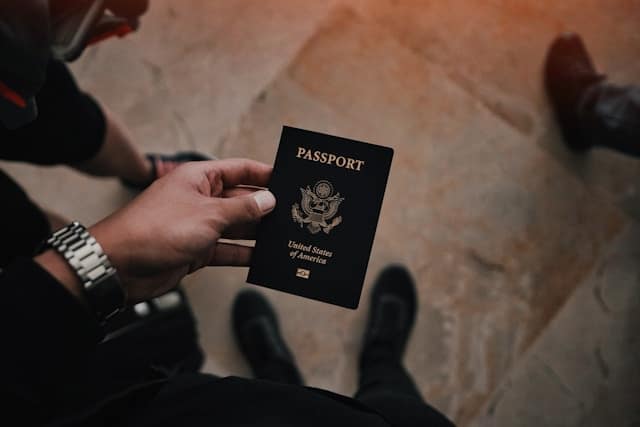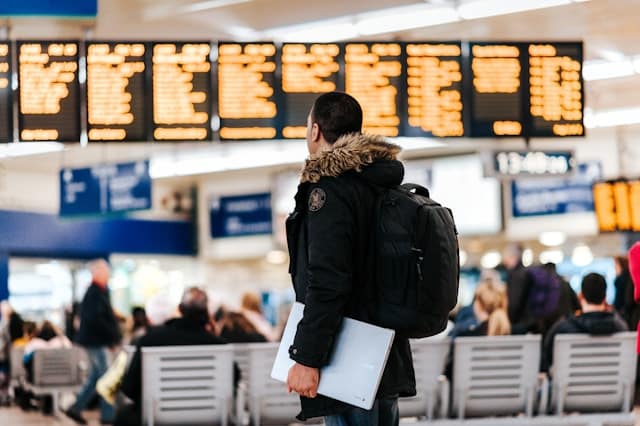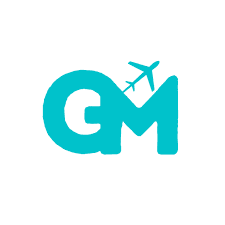The recent spike in H-1B visa fees has sent shockwaves through the U.S. workforce, especially among international professionals and academic institutions. On October 3, a coalition of labour unions, healthcare organisations, religious groups, academic institutions, and individual visa holders filed a legal challenge against the administration over the $100,000 increase in fees.
The plaintiffs argue that this hike could severely restrict access to international talent, undermine innovation, and worsen a projected shortfall of 5.3 million skilled workers over the next decade. Notably, prominent groups like the American Association of University Professors (AAUP), representing over 50,000 academic professionals, and the Global Village Academy Collaborative, a network of bilingual schools, are directly opposing the policy.
The lawsuit was filed just two weeks after the fee increase became effective on September 21. The new H-1B visa fees for 2025 were introduced following a White House proclamation criticising employers who allegedly use the H-1B visa program to replace American workers rather than supplement the domestic workforce. This sudden spike in immigration visa expenses has left many aspiring visa holders and institutions scrambling to understand the ramifications.
Table of Contents
Understanding the H-1B Visa Fees Controversy: Why the Legal Challenge Claims Visa Fees Are Unlawful
At the heart of the legal challenge is the claim that the $100,000 fee hike violates the U.S. Constitution and federal law. The plaintiffs argue that the President lacks the authority to impose such fees unilaterally, as the “power of the purse” rests with Congress.
The lawsuit further highlights that the implementation ignored requirements under the Administrative Procedure Act (APA). Under the APA, any new visa charges should allow for a 30-day public notice and a period for public comment. Instead, the fee went into effect just two days after its announcement. This dramatic rise (20 to 50 times higher than previous visa application processing fees) has triggered questions about legality and fairness.
For affected individuals, this isn’t just a bureaucratic debate. Postdoctoral researchers and university faculty have already had their visa application expenses impacted, with some petitions being put on hold. The plaintiffs argue that the fee hike could have long-term repercussions on the U.S.’s ability to attract and retain international talent.

Who Is Most Affected by the H-1B Visa Fees Increase?
The lawsuit draws attention to the human side of policy changes. Fields such as science, engineering, nursing, education, and healthcare are particularly vulnerable. Andrea Liu, a physicist at the University of Pennsylvania, described the fee increase as “an utter disaster” that could slow scientific progress.
Religious organisations are also concerned about recruiting staff with specific language and cultural skills, critical for serving diverse communities. With future visa application costs skyrocketing, institutions that rely heavily on international talent may face both financial strain and talent gaps.
Additionally, recent surveys from NAFSA, a major association of international educators, reveal that more than half of postgraduate students would be less likely to enrol in U.S. institutions if H-1B visa fees remain tied to high wage thresholds. This shift threatens a decline in international students, which could reduce the inflow of diverse perspectives and critical skills across multiple sectors.
Read Also: Global Incoming International Students in the US Drop by 19%
The Administration’s Defence of the H-1B Visa Fees Increase
A White House spokesperson, Abigail Jackson, defended the policy, claiming it encourages employers to prioritise American workers and discourages misuse of the visa system. Jackson argued that the move was lawful, dismissing the lawsuit as a distraction initiated by groups opposed to the administration’s immigration policies.
However, critics point out that the abrupt nature of this policy, combined with its massive financial burden, could have unintended consequences. The increase in visa application expenses doesn’t just affect large corporations; it impacts universities, startups, hospitals, and non-profits that rely on international expertise to maintain operations and competitiveness.
The Broader Impact of the H-1B Visa Fees on Research and Innovation
The plaintiffs warn that this steep rise in H-1B visa fees will likely slow research and innovation in the United States. Programs dependent on international researchers risk delays or cancellation, affecting studies in critical fields such as artificial intelligence, medical research, and engineering.
Predicted labour shortages of approximately 5.25 million workers with postsecondary education by 2032 are expected to disproportionately impact sectors like teaching, nursing, and engineering. Rising visa application expenses will only exacerbate these challenges, potentially leading to a talent deficit that the U.S. cannot easily fill domestically.
Major corporations like Amazon, Microsoft, Apple, and Meta, all significant users of the H-1B visa, are actively monitoring the legal proceedings, highlighting the high stakes of these policy changes for both the private sector and the broader economy.

Legal and Administrative Tensions Over H-1B Visa Fees
The lawsuit specifically names officials such as Homeland Security Secretary Kristi Noem, USCIS Director Joseph Edlow, CBP Commissioner Rodney Scott, and Secretary of State Marco Rubio. Plaintiffs argue these officials exceeded their legal authority in implementing the fee increase, emphasising the tension between enforcing domestic employment priorities and maintaining access to critical international talent.
Additionally, plans to overhaul the H-1B lottery process to favour “higher-skilled and higher-paid” workers are under review. The administration has proposed a 30-day public comment period for these changes, but questions remain about the broader impact on visa application processing fees and international applicants.
The potential wave of further litigation is being closely watched, with the U.S. Chamber of Commerce reportedly gauging member interest in joining suits against the fee increase.
Final Thoughts
The dramatic rise in H-1B visa fees is a challenge that affects students, researchers, educators, healthcare workers, and countless organisations relying on international talent. While the administration maintains that the fees aim to prioritise American workers, the legal challenge demonstrates the complexity of balancing workforce needs with lawful and fair implementation.
Ultimately, understanding future visa application costs, the implications of immigration visa expenses, and the potential delays caused by high H-1B visa fees 2025 is crucial for anyone navigating the U.S. immigration system. This case is a reminder that policy changes have real-world consequences, impacting careers, research, and the global standing of U.S. institutions.
FAQs
What are the current H-1B visa fees 2025, and why are they controversial?
The H-1B visa fees 2025 saw an increase of up to $100,000, dramatically higher than previous charges. Critics argue this violates federal law and constitutional principles, making it difficult for individuals and institutions to afford visa application expenses.
How will H-1B visa fees affect future visa application costs?
The steep increase may make future visa application costs unpredictable and unaffordable for many researchers, educators, and organisations, leading to delays, hold-ups, or withdrawal of applications.
Who does the H-1B visa fees increase affect?
International researchers, postgraduate students, universities, hospitals, and non-profits that rely on specialised global talent will feel the greatest impact of immigration visa expenses and visa application processing fees.

